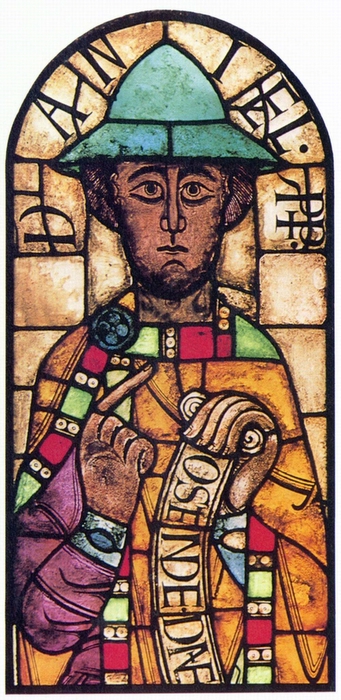by The Rev. Danae Ashley
But Daniel resolved that he would not defile himself with the royal rations of food and wine; so he asked the palace master to allow him not to defile himself. –Daniel 1:8
The Old Testament reading for today’s Daily Office is the first chapter of the Book of Daniel, telling of the life of a conquered people under foreign rule. While this account is not historically accurate, it rises to the level of cultural mythology in its powerful message of God’s presence in the midst of exile. Daniel, his three friends, and other young Israelite nobles are brought there to be educated in the literature and language of the dominant culture and, after three years, serve in the king’s court. This serves to assimilate the conquered and exiled people into the culture and values of the Babylonian empire—power and wealth.
Assimilation can bring about ease or devastation, often both at the same time. In the story of Daniel, the palace master calls Daniel and his friends by Babylonian names instead of using their Israelite ones. There is power in a name, and in the ancient world, giving someone a different name reflected power over them. God changed Abram and Sarai to Abraham and Sarah. Jacob is called Israel. Jesus is called Beloved. Jesus calls us children of God.
We are children of God and, like Daniel, we also live in an imperial culture. What does our culture name us? I witness all sorts of naming, especially in advertising and social media: fat, ugly, dumb, loser, uppity, weirdo, psycho, not good enough, and the list can go on. We must resist the assimilation – both of ourselves and others – by not taking on the names that the empire insists on trying to give us. We take our name from God: Beloved. Beloved. Beloved. We must live in the power of God and not in the power of the empire.
Daniel insists that he not defile himself with the royal rations of food and wine. He is clear about not eating what the king would give him because he did not want to be dependent on the wealth of the conqueror, as controlling food equaled controlling a life. The Israelites had purity laws that set them apart so that they would not be completely assimilated into the dominant culture when in exile. Daniel set himself apart as an Israelite even as others assimilated. God rewards Daniel’s faithfulness with protection and deliverance.
In H. Richard Niebuhr’s book Christ and Culture, he explores the different ways in which followers of Jesus have interacted with the culture around them throughout the past two millennia. It is a little simplistic and stereotypical in some ways, but the five approaches he explores give us a framework for looking at how we live in a world that constantly pressures us to assimilate its imperial values: Faith against Culture; Faith framed in Culture; Faith and Culture in Sync; Faith and Culture in Paradox; and Faith transforming Culture. Where are we living now? As Christians, we are called to live from a place of knowing that God is faithful and there is enough for all. We are called to share what we have; not to live from a place of scarcity, but abundance. We are called to lift up others’ gifts so that we may build up the Body of Christ to heal the broken world. Being a Christian means that we live distinctly. Following Jesus means that our values are different. How are these values and ways of being in line or in dissonance with contemporary American culture?
We have been exiled in the strange land of the pandemic this past year. Like Daniel, we have lost our ways and places of worship, the people we love, and some of the ways we express ourselves. In a culture where wealth and power are worshiped as idols, how do we set ourselves apart as Daniel did? No one in the neighborhood sees us entering a Zoom worship service. But simply going to church makes us no more Christian than standing in a garage makes us a car. People go to church for many different reasons and not all of them are about following the Way of Love.
How do we remain true to our faith in the face of this pressure to follow the gods of wealth and power? Each of us must come up with our own answers. May Daniel inspire us.
____________________________________
The Rev. Danae M. Ashley, MDiv, MA, LMFT is an Episcopal priest and marriage and family therapist who has ministered with parishes in North Carolina, New York, Minnesota, and is serving part-time as the Associate Rector at St. Andrew’s Episcopal Church, Seattle and a therapist at Soul Spa Seattle, LLC. She has written for a number of publications, produced a play, and has been featured on several podcasts regarding fertility struggle and faith. Danae’s favorite past times include reading, traveling with her husband, dancing with wild abandon to Celtic music, and serious karaoke.
Image: Daniel – Suddeutscher Glasmaler

